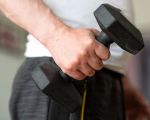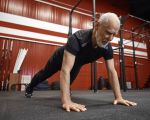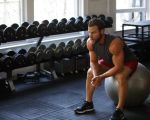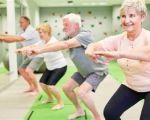- understanding-the-goals-of-a-bodybuilding-workout-plan
- structuring-your-training-according-to-competition-phases
- key-components-of-an-effective-gym-workout-plan
- real-competitor-story-from-training-to-stage
- importance-of-professional-guidance-and-supplementation
1. Understanding the Goals of a Bodybuilding Workout Plan
Creating a gym workout plan for bodybuilding competition requires far more than lifting heavy weights. It's a science-backed journey combining hypertrophy-focused training, strict nutrition, strategic recovery, and mental resilience. Unlike general fitness routines, a bodybuilding competition plan targets specific physique improvements—muscle symmetry, mass, definition, and stage presence.
The primary goal is to sculpt a balanced and proportionate physique. This means dedicating time to areas that may be lagging behind genetically, while maintaining overall muscle harmony. Additionally, posing practice and endurance under stage lighting conditions are often overlooked, yet play a major role in your final performance.
Many aspiring competitors underestimate the discipline required. This isn’t just about looking good—it’s about timing every rep, every meal, and every rest day to match your competition date. For tailored plans and expert-backed products, you can explore resources at Fitness to find what works best for your bodybuilding journey.
2. Structuring Your Training According to Competition Phases
An effective gym workout plan for bodybuilding competition is typically broken into four phases: off-season, pre-contest, peak week, and recovery. Each has unique priorities and adjustments.
Off-season (Muscle Building): This is where size is built. Volume, progressive overload, and compound movements like squats, deadlifts, and presses dominate. Most athletes train 5–6 days a week, using a split routine—often push/pull/legs or body-part-specific days. Calories are higher to support hypertrophy, and rest is critical.
Pre-contest (Cutting & Shaping): Typically starting 12–16 weeks before showtime, this phase focuses on fat loss while preserving muscle. Cardio becomes a bigger player, and strength training shifts toward higher reps, shorter rest periods, and supersets. Nutrition becomes surgical, often moving into calorie deficits with macro tracking.
Peak Week: The most technical phase. Water intake, sodium levels, carb manipulation, and training intensity all converge here. Some athletes perform “carb loading” days before the show to maximize muscle fullness. This week requires immense attention to detail and often input from a coach.
Post-show Recovery: An often overlooked, yet essential period. This phase helps your body and mind recover from intense dieting and stress. Smart reverse dieting and a gradual return to off-season training prevent metabolic damage and burnout.
3. Key Components of an Effective Gym Workout Plan
Each session in your gym workout plan should be purpose-driven. Here are some non-negotiables for competitors:
1. Progressive Overload: This fundamental principle means gradually increasing weight, reps, or volume over time. Without it, your muscles won’t adapt or grow.
2. Mind-Muscle Connection: Especially during isolation work (like bicep curls or lateral raises), focusing mentally on the muscle being trained can drastically improve activation and results.
3. Variety and Periodization: Incorporate different angles, tempos, and rep schemes. Periodizing your training—alternating between strength, hypertrophy, and endurance—prevents plateaus and optimizes muscle development.
4. Recovery Strategy: Muscle growth happens outside the gym. Ensure you get 7–9 hours of sleep, incorporate rest days, and use tools like massage or mobility work. Many athletes also use deload weeks every 6–8 weeks to reset the central nervous system.
5. Nutrition Synergy: Your workouts are only as good as your fuel. Proper pre- and post-workout meals, timed carbs, and adequate protein intake are essential. Explore meal prep options and supplement guides at Fitness to stay on track with your plan.
4. Real Competitor Story: From Training to Stage
Daniel, a 32-year-old office worker turned competitive bodybuilder, began his journey with zero stage experience. What made his story inspiring was his commitment to a structured gym workout plan tailored for a novice competitor. He spent 18 months building mass during his off-season, training five days a week, logging every lift, and adjusting calories monthly.
Fourteen weeks before his first competition, he entered a cutting phase. With support from Fitness, he found a macro-based nutrition plan and a coach who refined his posing and helped adjust his training weekly. Despite intense cravings and low energy during peak week, he stepped on stage at 6% body fat and placed third in his debut. His story highlights how consistency, planning, and guidance can turn anyone into a stage-ready athlete.
5. Importance of Professional Guidance and Supplementation
Bodybuilding is one of the most demanding athletic pursuits. A solid gym workout plan alone isn’t enough—you need a professional eye to catch blind spots and tweak details you might overlook. Hiring a coach, even temporarily, can bring clarity to macro planning, posing mechanics, and emotional resilience.
Supplementation also plays a significant role in optimizing performance and recovery. Protein powders, BCAAs, creatine, and thermogenic aids are commonly used, but choosing high-quality, tested products is essential. Poor supplements can derail months of progress.
That’s where platforms like Fitness come in. They offer trusted brands, expert reviews, and consultation options to help you build a safe and results-driven stack that complements your individual goals and workout phase.








